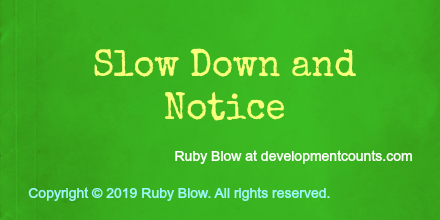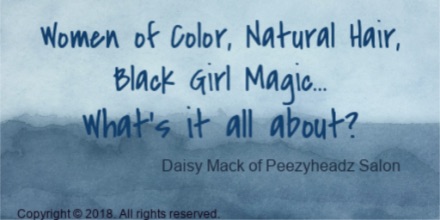As therapists we are taught the assessment value of sleep, particularly as it relates to mental health. We know that problems with sleep can hint at underlying disorders like depressive disorders and anxiety disorders. I am hopeful that most of us know that sleep and the quality of sleep also points to overall health. We are not junior MD’s. However our unique contact with clients allows us tremendous opportunities to absorb information and gain an overall picture.
Sleep & Health
When a person does not get enough sleep it can impact their health in some very common ways. The first and most obvious is fatigue. A person who is tired all of the time can come across as low energy and even have a depressed mood. How can we know the difference? I think it is vital to work toward sufficient sleep. This means that the focus of therapy may include determining the underlying factors that contribute to lack of sleep.
Poor sleep is not just insomnia or even hypersomnia. People who don’t get enough sleep can go on to develop high blood pressure and other heart problems. Our minds and bodies need sleep/rest to function properly. A person who is sleeping a lot may be doing so because they are not getting restorative rest as well. We know that sometimes people who are depressed sleep a lot as a function of shielding oneself from the world. At the same time, a person with anemia or sleep apnea may be sleeping a lot because they are physically trying to compensate for an underlying problem that leaves them feeling physically, psychologically and emotionally depleted.
Sleep Hygiene
Poor sleep also involves poor sleep hygiene and it can also involve physical barriers to restorative sleep. Sleep hygiene involves one’s habits and readiness for sleep. It includes one’s space for sleep and whether or not it cultivates an atmosphere for rest. Too much light in a space for example is generally not conducive for rest. Body temperature can effect one’s ability to sleep. A full bladder or the need to urinate frequently can play a role in adequate rest. I recall years ago an older male client complaining about frequent urination. In my haste to be helpful and in my lack of knowledge about aging and particularly aging in men…I offered unhelpful solutions. My client pointed out that his prostate was the main cause of his frequent urination. So for him, no matter how early he stopped drinking water, he would be up at night. Like I hinted at before, sleep is complicated. Life is complex. It’s important for effective therapists to appreciate complexity. We must exercise patience in our quests for sleep for ourselves, as well as our support for clients and their sleep journeys.
Sleep Story
For years I just thought I was someone who didn’t “like to go to bed.” I thought of myself as someone who was more productive at night, so naturally I stayed up late to get things done. The truth was, somewhere along the way I started avoiding sleep altogether because I wasn’t sleeping well. It’s not until very recently that I understood that truth. I understand it better now because I am sleeping better now and I actually look forward to going to bed. Something that I have perhaps never felt in my life.
In my case, a big barrier to sleep involved me not breathing well while I was sleeping. I have suffered from allergies for years. I’ve had ongoing inflammation in my nose and sinus area that most people only experience when they have a cold. That became my norm and somehow I was so accustomed to it that I didn’t realize how negatively it was impacting my well being. It wasn’t until my breathing was challenged due to my lungs that I also sought answers for my nose and sinus area. For the first time probably since my late teen years or early adulthood, I am now breathing through my nose. I can breathe with my mouth closed. I can sleep in a more comfortable position because I don’t have as much pressure in my head. I wake up with less body pain because of sleep itself and proper oxygenation. Like many people under stress, I was grinding my jaw in my sleep. I finally invested in a mouth guard fitted to my teeth by my dentist. A comfortable night guard allows me to wake up without jaw pain. It is also protecting my teeth. I recently learned that one had cracked due to grinding.
Sleep & Restoration
Getting better sleep – including more deep sleep – is protective for the brain. Our cognitive functioning depends on quality sleep. Research is supporting that those with more restorative sleep are clearing plaques in the brain that are involved in the development of Alzheimer’s disease.
The quest for better sleep is a journey toward better overall health. My quest for better sleep involved my lung/sleep medicine doctor, my ear/nose/throat doctor/surgeon, and with input from my endocrinologist and heart doctor. The quest for better sleep also involved me seeking real data on my sleep. I didn’t know how bad my sleep was until I started to measure it using my Fitbit and now my apple watch. I am not saying that everyone needs these devices to know that they are not sleeping well. What I can tell you is that seeing the data convinced me that what was my normal was not good for me. A big part of what we provide as mental health professionals involves supporting people in recognizing what is not working for them. Data can go a long way. Noticing, paying attention and reflecting go a long way.
Time to Go To Bed
As I finishing this post it is 10:25 pm. Very late for some, yet still early for me as I shift from my night owl ways. What I have learned is that I need to start getting ready for bed by 10:30 at the latest to catch my first wave of feeling sleepy and ride it into bed at a reasonable hour. My goal is to get 8 hours of sleep. I am ecstatic if I get close to 7.5. I feel good if I get that much sleep. Feeling good matters. It means I feel capable and my brain does most of what I want it to do. It means I am able to manage pain better or better yet not be in pain. I don’t know what better sleep would mean for you or your client(s). However, I know that better sleep is part of a better life. If you’ve always had great sleep hygiene and great sleep: Good for you. Perhaps this blog post will give you some hints as to some of the factors that can be impacting a client or a loved one. Perhaps it will raise your awareness of all that must be addressed on the journey to better sleep.
Copyright © 2019 Ruby Blow. All rights reserved.
Share your thoughts on Linkedin, Facebook, Twitter, Instagram or log in to one of your accounts below to comment. Subscribe to my YouTube channel.





